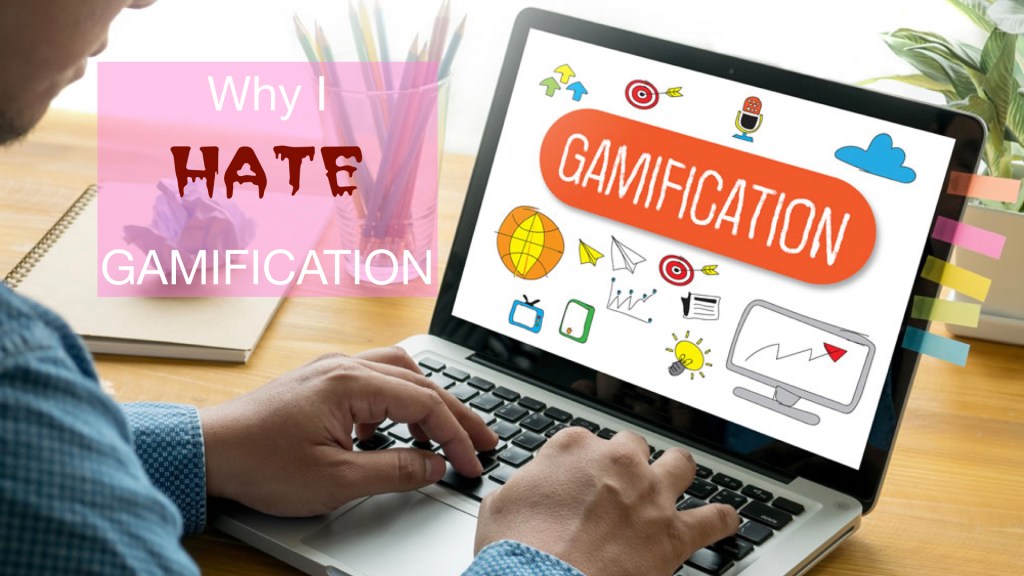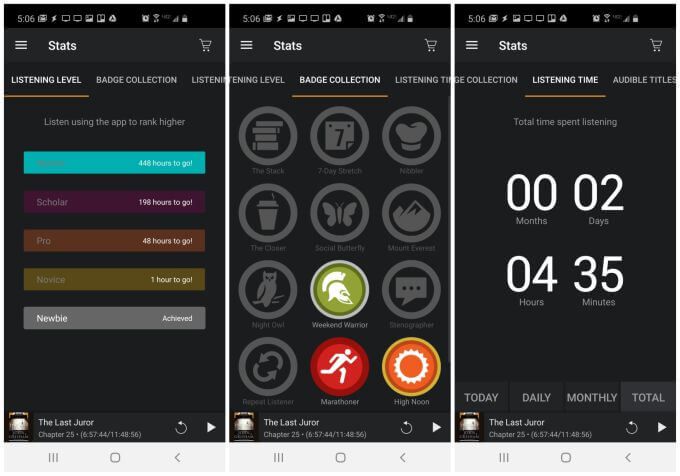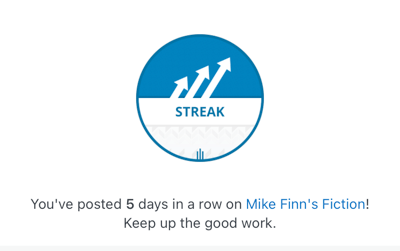
I disliked the word GAMIFICATION on sight.
I was in an in-house briefing in our Digital Transformation consulting practice. The topic was ‘Enriching The User Experience’ which hadn’t put me in the best frame of mind. I was a digital Luddite. The only experience I wanted with a computer was for it to do what I told it to do as quickly and simply as possible. I didn’t want it to talk to me or to make suggestions about what I’d really meant to ask it to do or to use fancy graphics to do something I’d already been doing for decades with a simple keyboard shortcut.
When the word ‘GAMIFICATION’ popped up on the screen (and yes, it was in capitals using a non-threatening child-friendly font in a primary colour, my first thought was – ‘Who thought it was a good idea to use a word as ugly as that?’ I didn’t know what it meant but my sub-conscious, that has a much better time in meetings than I do, presented me with a vivid image of maggot-infested game birds ripening on a metal hook in a cold tiled room with no windows. I was so distracted I almost missed the definition.
I was shown a slide something like this one.

The boxes above the title were supposed to show the benefits. The boxes below the title were supposed to show the mechanics.
The basic pitch was that if we could ‘gamify‘ (yep, that’s really the word they used) systems design, then we could increase ‘user engagement‘ (stop people getting bored) and motivate them to be more productive.
We were going to turn work into play. We were going to make people happier while also making them more effective and we were going to do all of that by using aspects of game design. The trick was to persuade them that they were having fun and making progress and getting better at what they were doing. We’d do that by making rewards visible in the form of badges, awarding points for key activities, establishing leader-boards and giving normal work tasks sexier names.
I knew immediately that this was a concept that would spread everywhere because it was simple and attractive. I also knew it was a lie.
It’s not that it wouldn’t work. I was sure it would. It was how it worked and who benefited from it working that we were deceiving ourselves about.
Computer games are designed to make players play them more often, for longer and with more focus.
In other words, computer games are designed to be stressful in a satisfying way and to be deeply addictive.
That’s fine. If computer games didn’t have those attributes then why would anyone play them?
The problem comes when you gamify a work activity or a non-game-based leisure activity.
Employers pay consultants to gamify systems so that employees will work harder, compete more and feel more pressure to hit targets and not to let their team down. Vendors pay consultants to gamify systems so that online customers will stay longer, visit more often and buy more. In both cases, the aim isn’t really to ‘enrich the user experience’. The aim is to get more work from workers and more money from customers without either set of people understanding why they’re working harder or spending more.
I know I’m a grouch and perhaps a little paranoid and definitely not the target audience for the digital world. I switch off Siri. I don’t let my phone or my computer know my location. I don’t let either of them talk to me, or read my biometrics, or send me alerts or suggestions. I tell my machines what to do and ignore them the rest of the time.
So gamification is just another taken for granted thing about technology that I don’t like. Except, I don’t just dislike gamification, I hate it.
Why?
Because it’s a con. It’s a deliberate, carefully engineered attempt to change my behaviour to benefit someone else.
To paraphrase Proudhon, ‘Whoever lays his hand on me to gamify me is a usurper and a tyrant and I declare him my enemy’.
Or to put it more succinctly: ‘Don’t try to game me. I won’t play’.
I manage to avoid most gamification. I don’t use loyalty cards or collect points or use coupons. I just buy what I want if I can afford it and go without if I can’t.
Yet gamification has found a way into my life through the things I do for pleasure. That’s something I deeply resent.
It started with Audible. I buy and read a lot of audiobooks and listen to them mostly via an app on my phone. The app has been gamified. If you use it, you’re probably familiar with screens like this:

This is Audible (Amazon) trying to use gamification to get me to buy more audiobooks and to increase my desire to use their app. These screens are in the stats section. I don’t have to look at them but I can’t stop the data being collated and presented anyway.
The first thing Audible does is set a hierarch of five Listening Levels: Newbie, Novice, Pro, Scholar and Master based on how long I’ve listened. It tells me how long I have to listen to get to the next level and offers me the opportunity to share my ‘achievement’ on social media.
Then they offer me Badges, each with its own cute icon and snappy title, to mark other things I ‘achieve’ while listening to my audiobooks. The one I hate most is called ‘Weekend Warrior’, (it’s the one with the helmet in the green circle in picture above) which is awarded for listening for at 24 hours total on a weekend.
I hate the idea that Audible is pushing listening time like it was an opioid. I hate the Weekend Warrior because it takes my peaceful, relaxing, doing no harm to anyone activity and it gives it a macho quasi-military flavour. That’s pathetic and insulting.
The third screen in the picture Listening Time. It tells me how many hours and minutes I’ve listened to today, this month and in total. There’s no overt gamification here, except that, by measuring it, they imply that the total listening time is important.
Here are five reasons why I bridle at these stats:
- I hate that Audible is collecting all this information about me and holding it on record against my name. It makes me feel surveilled.
- I hate the effort to turn reading into a competitive activity
- I hate being told what I should value about the time I spend reading
- I hate being treated like a child that needs an adult to tell them how good they’ve been and how special they are.
- I have no means of asking Audible NOT to collect and display this data.
Then there’s WordPress.
I like WordPress. I’ve been using this blog for ten years and I had other WordPress blogs before that.
Mostly, WordPress focuses on giving me the tools and environment to write the kind of blog I want to write and to make it easy for bloggers to find, read and comment on each other.
But there’s gamification too.
I got this yesterday:
It’s mild by comparison to Audible. It’s probably meant to be encouraging and supportive. That’s how gamification works. It looks helpful but it’s help with an agenda.
The subtext of this piece of ‘help’ is that it’s good to post on as many consecutive days as possible. Every time I do that, I’ll get another message marking my ‘achievement’ and telling me to ‘Keep up the good work’.
That creates a pressure to keep the streak going. How does this benefit me?
I write to get the words out of my head.
I write to applaud the authors I read and to keep the memory of reading pleasure fresh.
I write only when I have something that I want to say.
I don’t write to please other people or keep a schedule or have WordPress tell me I’m doing a good job.
Tomorrow is Sunday. It would be my eighth consecutive day of posting. If I post tomorrow, it won’t be so that I don’t break the streak It will be because I have something to say and writing the post will bring me pleasure.
I don’t care about streaks and I wish WordPress wasn’t trying to gamify me into caring.

I find gamification useful if I’m trying to build a habit (eg regular exercise). But I was taken aback to see my Kindle app now tells me I’m on a streak because I’ve read xxx days in a row or finished y number of books. I want to yell, “Nobody asked you for your opinion!”
LikeLiked by 2 people
Exactly.
Gamification is fine when what it measures and promotes is what you want it to measure or promote.
It’s a menace when it measures and promotes things that distort what you were trying to do (read and relax) and inserts the supplier’s agenda (buy more kindle books).
It seems to me that the subtext of the streak notifications is ‘Amazon is monitoring your activity and wants to commend you for being a good consumer.’
LikeLiked by 2 people
Hi, Mike,
I’d never seen that word before just now. I wonder if I am the only one who didn’t clue into what it was, because looking at it, it seems as if it should rhyme with “ramification,” and I couldn’t, for the life of me, imagine what “gam(short a)ification could be. My mind went immediately to the idea of putting legs on something. (Yes, I’m old enough to remember when women’s legs were often referred to as “gams” — in a flattering way, of course.) I couldn’t imagine what your blog was going to be about. 😀
In any case, I’m with you on gam(long a)ification, mostly because I get tired of all kinds of things being turned into competitions — games. I’m a bit of a Luddite and still buy paper books, exclusively, with the exception of reading short stories on my computer (I don’t own an e-reader). I’m also a bit of a sensualist, so paper books satisfy some of my senses, none of which involves a sense of competition.
Really enjoyed your post.
Thanks.
Rose
LikeLiked by 2 people
Hi Rose,
It’s good to hear from you.
Gamification is a weird and quite ugly word. It’s only since I’ve stepped outside of the technology consulting world that I’ve become aware of just how strange the language we used was and how we twisted words in unnatural ways..
Like you, I prefer physical books. I’d imagined spending my retirement sitting in a winged chair in a room full of my favourites but my eyesight won’t allow that anymore, so e-readers, with font sizes that I can change until I can read with ease have rescued me.
Audiobooks are different. Some books become wonderful experiences when they have the right narrator. My most recent example is ‘Once Upon A River’, an excellent book made even better by having Juliet Stevenson perform it.
LikeLiked by 1 person
This is going to stay I’m afraid. It’s everywhere and difficult to opt out. Personally I don’t like it either. What irks me is that it’s so prevalent that now, even in my job, it’s expected to have some gamification into the design. This annoys me no end.
LikeLiked by 1 person